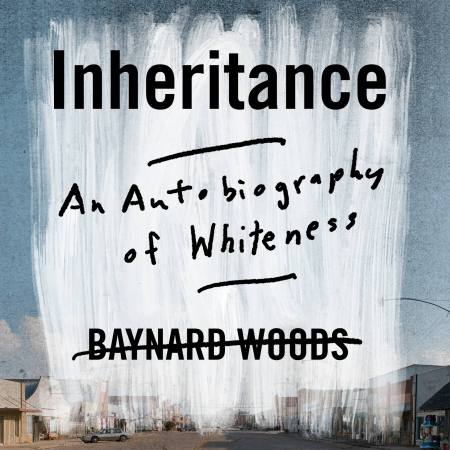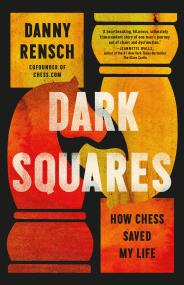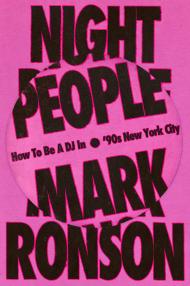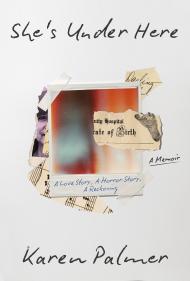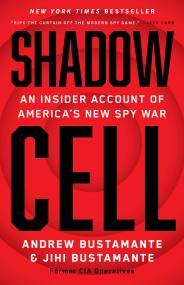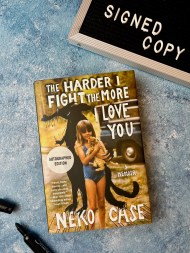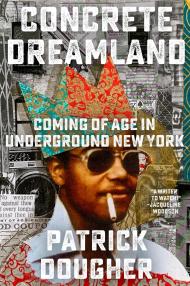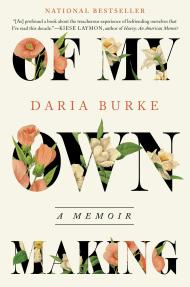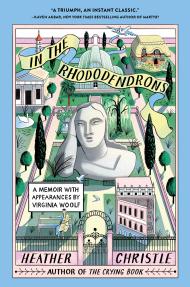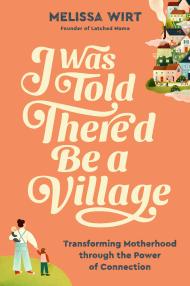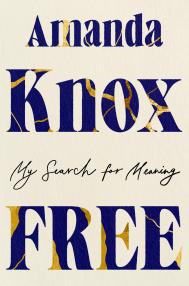Shopping Cart
Inheritance
An Autobiography of Whiteness
Description
“Bracing, candid, and rueful.” —Kirkus
Baynard Woods thought he had escaped the backwards ways of the South Carolina he grew up in, a world defined by country music, NASCAR, and the confederacy. He’d fled the South long ago, transforming himself into a politically left-leaning writer and educator.
Then he was accused of discriminating against a Black student at a local university. How could I be racist? he wondered. Whiteness was a problem, but it wasn’t really his problem. He taught at a majority Black school and wrote essays about education and Civil Rights.
But it was his problem. Working as a reporter, it became clear that white supremacy was tearing the country apart. When a white kid from his hometown massacred nine Black people in Charleston, Woods began to delve into his family’s history—and the ways that history has affected his own life.
When he discovered that his family—both the Baynards and the Woodses—collectively claimed ownership of more than 700 people in 1860, Woods realized his own name was a confederate monument. Along with his name, he had inherited privilege, wealth, and all the lies that his ancestors passed down through the generations.
In this gripping and perceptive memoir, Woods takes us along on his journey to understand how race has impacted his life. Unflinching and uninhibited, Inheritance explores what it means to reckon with whiteness in America today and what it might mean to begin to repair the past.
What's Inside
Chapter 1
I WOKE UP LATE, Dad yelling at my door.
“Move it or lose it,” he hollered.
It was early for me to be out of bed on a summer morning, but my friend Chuck and I were going to ride downtown to skateboard when Dad went to work today, and I’d hit snooze one too many times. Dad was never late for work. I threw on some shorts, a T-shirt, socks, and my smelly Vans skateboard shoes and hurried down the stairs.
In the kitchen I gulped down a glass of milk, and as it coated my throat with coolness, I stared absently out the window at the woods that extended for miles behind our wooden two-story house in Irmo, South Carolina, a leafy suburb ten miles from the state capital, Columbia. Then I noticed that the thermometer mounted outside the kitchen window read 87 degrees already. It wasn’t even eight o’clock yet. It was going to be hot.
“Make sure you drink enough,” said Mom, handing me a five-dollar bill and a small plastic bottle of Coca-Cola. “And don’t get hurt. You’ve got to take the SAT this weekend.”
I ignored her and picked up my skateboard from where it was leaning against the wall, the glittering grip tape refreshingly rough against my fingers.
“Just think,” she continued. “Next summer you could go to Duke.”
“Mom,” I groaned. “I told you, I don’t want to go to Duke next summer.”
“You’ve got to think about your future, Son,” Dad said, walking into the kitchen wearing a blue button-down shirt and a red tie, holding his sport coat on a hanger in his hand. His graying hair was washed and parted to the side, his mustache neatly trimmed beneath his nose.
I was about to turn thirteen and had no interest in thinking about the future.
“If you go for this talent scout program,” Mom said, “then you’ll get a scholarship to go there for college and then law school and—”
“You can get a good job,” I said, mimicking her. That was my parents’ promise, their spiel, their litany, and I’d heard it over and over again all my life: work hard, go to a good college, get a good job, and you will live happily ever after.
It was a seemingly democratic pledge, the idea that anyone can succeed with a little sweat. But everything that surrounded that promise already made it ring hollow. For them, it was about going to the good schools, which meant living in the good neighborhoods, which meant wearing the right clothes and having the right friends and playing the right sports. And being the right race.
“We can talk more about this later,” Dad said. “We’ve got to go. I have a meeting and can’t be late.”
Dad identified so deeply with the insurance company where he worked that, until that year, I’d thought Seibels Bruce was something akin to God. Sometimes, when I’d thank him for a toy he’d brought me back from a business trip, he’d say, “Thank Seibels.”
I grabbed my Coke and tucked my skateboard under my arm, happy for the chance to spend one of the final days of summer skateboarding downtown, where the terrain was far more interesting than in our leafy subdivision.
When we got into his company car, which was square and boxy and looked like a police car, Dad turned the radio to his favorite station for his morning commute. The morning DJ was the father of one of my old friends, David, from elementary school.
“Have you seen David lately?” Dad asked.
“Not this summer,” I said.
If a kid didn’t skateboard, I was not interested in hanging out with him. I had been a chubby, clumsy loser throughout my life, and now that I was a skateboarder, I felt cool and confident for the first time.
Skateboarding was an unlikely passion for me. At least one doctor in a series of specialists had described me as “retarded” when I couldn’t use scissors or skip in kindergarten. My parents had sent me to a special school that summer.
“You’re so smart, you’re going to college,” my mom had said, describing this remedial program. She wasn’t technically lying, since the program was located on the university campus, but one look around and even I knew that the other kids in the program were not there because they were geniuses. We were the kids who couldn’t learn to tie our shoes.
I’d hated it, and I couldn’t believe they expected me to want to go to another summer program at a university. “But it’s Duke,” Mom would plead, as if that was supposed to impress me. Hell no, I thought as we pulled out of the garage. I’m going to be skating.
Just hearing David’s dad on the radio brought back memories I wanted to put behind me.
In addition to going to the special school, the doctors said I should play as many sports as possible to develop coordination since I was so awkward and clumsy. Instead, I’d developed a thick skin as the worst player on any team. The kids made fun of me, and I had to decide that I would not care, or I would have perished under the mockery. But Dad’s disappointment was different. He tried his hardest, but he couldn’t quite manage to hide that look of pity in his eyes.
Dad loved sports and he could see that I did not, even though I attempted to fake it because I loved being with him, sitting with him at college football and basketball games or at NASCAR races, which I liked better than the other sporting events. When I first got on a skateboard, all of that changed. I felt a sense of competence for the first time in my life. I felt freedom and passion while moving through the air, and it changed my body, transforming it from a soft mass of undefined boy-flesh into the rangy, wiry body of an adolescent athlete. And my parents just kind of looked on in awe—and fear. As an insurance claims adjuster, Dad had seen numerous cases involving gruesome skateboard injuries.
Dad pulled out of the long driveway lined with tall, prickly bushes, and we drove two blocks through our subdivision, Murraywood, most of whose houses sat, like ours, up on a hill on either side of the valley where a creek ran along beside the road, before pulling up in front of my friend Chuck’s single-story house at the end of a cul-de-sac. Dad gave a quick toot on his horn, and a moment later Chuck fluttered out his door like a gangly bird and approached the car, his skateboard under his arm, his ripped Chuck Taylor tennis shoes flopping on his feet.
“He needs some new shoes,” Dad said.
“So do I,” I said, trying to show him the hole in the side of my duct-taped sneaker as Chuck opened the door.
“What’s up, dude?” I said as he got in.
“Nothing much.”
“Hi, Chuck,” Dad said.
“Hi, Mr. Woods,” Chuck replied through the long bangs hanging out of his baseball cap with an upturned bill and the circled A, symbolizing anarchy, scrawled over the stitches on its green underside. Dad looked in the rearview to make sure Chuck hooked his seat belt.
For a few hopeful minutes, as we passed from our subdivision into the commercial area with its gas stations, video rental places, and pizza joints, we listened to the radio in silence. Then Dad had a question.
“Your father works for John Deere, right?” he asked Chuck, catching his eye in the rearview.
“Yessir,” Chuck said. His family had just moved to town from West Virginia when the company transferred his dad a year earlier.
“That’s great. That’s a good, solid company. That’s what you’ve got to do. Find somebody solid, somebody that you can trust. For me, nothing is so certain as Seibels Bruce,” he said. “They have been around since the eighteen hundreds and will be around hundreds of years more. We’re about to buy one of the biggest international insurance companies in the South. A homegrown business from right here in Columbia. Yessir, God, taxes, and Seibels.”
“Come on, Dad,” I said, groaning. “This isn’t a commercial.”
“And Xerox,” Dad added. “Our neighbor, George Scoff, he’s been with them for years. And John Deere. Great company.”
I turned around in my seat and looked at Chuck and rolled my eyes. But as embarrassing as Dad was, I still liked him better than most of my friends’ fathers, including Chuck’s, who seemed to me often cold, distant, and imperious.
An illuminated bank sign said it was already 90 degrees. Chuck and I were going to be out in it, skateboarding around downtown Columbia all day while Dad was at work. And even though I was soaking up the AC before plunging into the intensity of the heat, I couldn’t wait to get out of the car.
We pulled off the interstate onto Huger Street and we were downtown, the buildings made of dirty red brick and speckled gray granite the color of a stormy sky. We cruised past a mural depicting George Rogers, a USC football player who’d won the Heisman Trophy and led Dad’s beloved Gamecocks to their most successful season in modern memory several years earlier.
“I hope that getting out of New Orleans will help straighten him up,” Dad said.
Then he looked in the rearview.
“You probably don’t know who that is, do you?” he asked Chuck, pointing out the window at the giant, smiling brown face of number 38 painted on the passing wall.
I’d gone with Dad to games during that 1980 season when Rogers ran hundreds and hundreds of yards, and I’d gotten swept up in the general excitement of the cheering crowds, even though I didn’t care about the sport. But that had been almost six years earlier, and this was just embarrassing now, listening to Dad tell Chuck all about Rogers’s glorious run as a Gamecock.
“After the Heisman, he was the first-round draft pick and went to the New Orleans Saints, where he led the league in rushing—until he was implicated in a cocaine sting,” Dad said. “He just got traded to Washington. But through it all, he still has his house here, over in Cold Spring.”
Neither Chuck nor I said anything. I was cringing. Dad’s earlier adulation and current condemnation of this man struck me as strange, out of whack somehow, and it was embarrassing.
We were silent again, and the radio DJ said that we might get a big thunderstorm that afternoon.
When we’d made the deal to come downtown with him, Dad had said he had meetings and we couldn’t come to his office, so we had to be sure we wanted to be out all day.
“And Phyllis is on vacation, so she can’t help you either,” he’d said of his long-time secretary.
But now he was relenting.
“Call me if it gets too bad,” he said.
“We’ll hide in a parking garage,” I said. “No problem.”
The statehouse dome loomed up ahead. The traffic was backed up as everyone streamed into the center of the city, cars sputtering along beside each other as pedestrians dodged back and forth at crosswalks at a density so different from that of my subdivision, where packs of kids were the only ones who walked down the street.
I turned in my seat.
“I’m gonna pull a boneless off those steps today,” I said to Chuck, pointing out the window and deflecting the conversation away from Dad with our private skateboard argot.
“Me too,” Chuck said.
We drifted into daydreams about the tricks we might try on our skateboards until we rolled up in front of Seibels Bruce.
“See that?” Dad said as we pulled into a parking space marked “Vice President.” “I started at the very bottom. If you work hard, you can do anything.”
Dad turned off the car, and Chuck and I scampered out. Dad opened the back door behind him and pulled the sport coat down from where it was hanging and put it on as if it were a piece of shining armor. He quickly ran his fingers through his mustache, ensuring there were no odd breakfast crumbs hanging on to one of the coarse salt-and-pepper hairs. I hated that mustache. He looked like a cop. And because of skateboarding, I had started to hate cops.
“I’ll see you boys back here at five,” he said. “Don’t be late.”
“Can I have five bucks for lunch?” I asked.
“Didn’t your mom give you five?”
“No,” I lied.
He took out his wallet. A car pulled into the lot.
“Thanks,” I said, and stuffed the bill into the pocket of my shorts. Then I jumped on my skateboard and rode off.
Gliding down the sidewalk, I looked up for just a second at the strange, angular shape of the building that housed Dad’s office. I’d been to his office plenty—but I had no idea what he did up there all day.
When he had been an adjuster, I’d understood. He’d take me around with him sometimes, and we’d look at wrecked cars, or he’d sit in body shops talking to guys about parts in rooms that smelled like grease while I lolled on an old car seat serving as a couch and watched a fan lazily blowing flypaper, or I’d gaze out the window at the mountains of crashed cars and retired yellow school buses. Once, when I was in third grade, he’d taken me to Montreal, where we’d picked up a stolen-and-recovered 1976 Corvette Stingray with T-tops and driven it back down to SC.
But now I had no idea what his job was, no clue what a vice president did all day in the office, but it seemed like school to me, where he just did busywork and memos, and with the summer ending, that was the last thing I wanted to think about. Outside on my skateboard, cutting between the people passing by on the way to work, popping the tail of my board and flying off the side of the curb and into the street, the rumble of the polyurethane wheels beneath my feet, reinventing the architecture, repurposing the curbs for fun as the wind blew my long blond bangs back away from my face—this was the life for me.
There were so many places to skate downtown—the trick was not getting kicked out. The university was the best spot, especially in the summer, when it was mostly deserted. But we also liked to climb to the tops of parking garages and bomb down them as fast as we could, cooled by the shady breeze against our faces, dodging the security guards when we got to the bottom.
Occasionally we would try the statehouse because we thought the multiple flights of granite stairs, the stone benches, and the plinths of statues were perfect props for our four-wheeled antics. But we always knew we would be chased away after a trick or two.
Mom would bring me to the state capitol when I was little to watch the squirrels and play in the grass, and every year or so my class would go on a field trip. A couple of years earlier, when I was in the fourth or fifth grade, we had gone on a class trip to the state capitol and all waited in a big line to shake hands with Senator Strom Thurmond, who sat aged and brittle, his eyes barely open and drool hanging from the right side of his crusty lip beneath the state scepter. He held out his frail and ancient hand to us, and we each shook it. “He is a great man,” our teacher told us.
As the afternoon wore on and Chuck and I exhausted the university spots, we found ourselves there once again at the historic capitol building. I skated by the hulking stone edifice and looked up to see the bronze stars that marked where Yankee cannonballs had bombarded the dome roof, and I noted the statue of George Washington standing in front of the colossal stairs holding a broken cane, which Mom had told me had been smashed by Yankees who hated freedom so much that they’d stoned the statue of the father of our country. “Sherman’s men weren’t content to burn the city,” she said of the Union attack on the birthplace of secession. “But then they had to go and attack the statue of George Washington.”
I popped an ollie, sending my board up into the air with my feet still on it, and came down on an acorn. My wheels stopped. I flew forward down onto the hot concrete. My palms burned; twigs and pine straw stuck to my sweaty chest and face. I heard Chuck say something and looked up to see his heel, level with my face, pushing away as his wheels whirred across the rough concrete.
I turned and saw cops running for me in gray uniforms. I climbed up from the pavement and threw down my board so that it was rolling and jumped on it. As far as we knew, these cops had jurisdiction only on the statehouse grounds, and so, I surmised, once I made it down these steps and onto the sidewalk, I should be safe. And what were they really going to do if they caught us, anyway?
One of the cops got close for a second, his gun belt bouncing against his leg as he tried to run and yell at the same time, but soon enough he stopped, bent over and coughing. I jumped down the steps as the rebel flag flapped above my head.
“Fuck you, man, I’m having fun,” Chuck cried from ahead of me, almost across the street.
“Fascist pigs!” I yelled as I rode away.
After the chase, we needed some AC. We made our way to the Burger King that served as our home base when we skated downtown. It was close to everything, food was cheap, and the parking lot had an embankment we liked to ride. I ordered a Whopper. We sat at one of the booths and gulped down ice water from the waxy cups.
I took a bite of my burger.
“These things taste good,” I said. “But they smell like BO.”
“Dude, that’s sick. Why would you eat it, then?” Chuck asked, chewing on a chicken strip.
“Because once you take a bite you don’t smell it anymore,” I said, shoving the ketchup-slathered buns into my mouth. “And it tastes good.”
A police car passed outside the window, reminding us of our escapade at the statehouse.
“Stupid cops,” I said, swallowing. “They’re just like the Yankees who attacked the city. They’re just trying to take our fucking freedom.”
“What?” Chuck said.
“I mean, all we’re doing is expressing ourselves. Being free. Having fun. And then they come running and tell us what we can’t do,” I said. “They don’t even have the right to fly a rebel flag. We’re the rebels and they chase us away.”
“I don’t think that’s why the Union Army came down here,” said Chuck.
When I was growing up, it was clear to me that everyone in Columbia walked around with this tragic sense that we lived in a conquered city, a city that had been burned. All the white people, at least. The ones who weren’t Yankee transplants. And we all were simultaneously sad, angry, and aggrieved. And it all felt justified. Even for a man like Dad, who believed in the system, or the American dream, more than anything, there was a sense that something was irrevocably lost, something in the universe deeply
askew. In my house, both Christ and the South would rise again.
“Sure it was,” I said. I’d always been proud that my great-grandfather had fought in the Civil War and had been wounded at Gettysburg. That was my dad’s grandfather, only three generations back, and there was a sense of veneration around the Confederate dead.
“Dude, the Civil War was about freeing the slaves,” Chuck said.
“I mean, not really,” I said. “It’s called the rebel flag and not the slave flag. That was just one of the things, but really it was about rebellion. Think of the Duke boys in the General Lee. It had the flag on it, and they were running from cops and jumping over stuff just like us.”
Chuck laughed.
“We’re just some good ol’ boys,” I sang from the show’s theme song, making sure I mocked the twang of the singer, Waylon Jennings, who had once been my favorite.
“West Virginia broke off from Virginia because the poor mountain men up there didn’t want to fight for the slave owners down here,” Chuck said. “Or at least that’s what we learned in school.”
I was pretty sure that a lot of people in my family had been slave owners. My grandmother had always told me that the slaves had been happy. I didn’t have any reason to question her. When I was small, she’d lived in an ancient house with her hundred-year-old mother, and I assumed she knew the past better than I.
“I mean, it’s not like I love that flag or ‘Dixie’ or anything,” I said in a quick deflection. “I was just saying. It’s a funny coincidence.”
“What’s funny is how our different schools teach different things,” he said.
Here in Columbia, they taught us the Civil War had been about Southern independence, and at Chuck’s old school in West Virginia, they’d taught him it had been about slavery. It was just evidence to us of how ridiculous our teachers and education system were.
“Yeah,” I said.
“It’s like nobody really knows anything,” he said.
“No shit,” I said. “That’s so true. Nobody knows nothing. Not for real.”
We sat there a minute in sweaty reflection. I looked at my watch.
“I know one thing,” I said, crumpling up the ketchup-smeared paper that had been wrapped around my Whopper. “We have another two hours to skate before we meet my dad.”
“Yeah,” he said. “Let’s get.”
We walked out of the restaurant and back into the blinding concrete heat of the city. But it felt as if our wheels had sunk into the overheated asphalt, and our movements were slow and dragging for the rest of the afternoon.
When I saw Dad walking out of his office at the end of the day, stripped of the buffer between work and home that his commute must have normally provided, he looked even worse than we did.
He had always been pudgy—his brothers sometimes called him Porky— but now that he was thirty-eight, Dad’s belly was beginning to balloon so that at the end of the day his dark-blue coat looked like an overstuffed trash bag that had ripped up the middle as he carried it out the door.
The other afternoon commuters seemed as weary and beaten down as Dad did, horns honking around us in a mad call and response before the mass of cars lurched slowly forward, their exhaust making the thick evening heat even more unbearable. The air felt like blue balls. Pedestrians now dragged their wilting bodies down molten sidewalks. We stopped at a red light. The news played softly on the radio. The light turned green. A horn honked. A Black man in a loose-fitting, short-sleeved button-down ambled slowly in front of us.
“Damn bear,” Dad sighed with slow frustration. “Can’t you read the damn signs?”
I glanced nervously between Dad beside me and the rearview mirror, where Chuck appeared smaller underneath all his sweat, the way a dog does when it gets wet.
I was embarrassed by what Dad had said because it sounded so country and dumb. Bear was one of many idiosyncratic turns of phrase he had picked up from his father, who, like Dad and his five brothers, had grown up in the small town of Manning, about an hour and a half southeast of Columbia. I loved barbecue from Manning, but other than that, I didn’t want anything to do with it. But that hick town was crystallized, along with everything else that embarrassed me about Dad, in the word bear as it filled the air-conditioned car while we waited to drive through the intersection.
The word didn’t bother me just because it was country. I knew it was somehow wrong. I didn’t know how or why really, but it was a word he only used derisively and only of Black people.
Our suburban subdivision was almost entirely white, but downtown, Black and white people shared the same space, passing on sidewalks on the way to work or to college. I remembered once, when we were in the car on our way to Capri’s Italian Restaurant, when Dad had referred to a “group of bears” who were standing at a bus stop downtown.
“John,” Mom had protested, slapping him on the shoulder with a soft, not-quite-playful hand.
“You remember when we were kids,” Dad replied. “It said ‘Colored’ above the doors. And ‘Negro.’ And some people said worse.”
“Only rednecks talked like that,” she said.
“I know. That’s why my daddy said ‘bear,’ ” Dad said, laughing. “It was polite in those days. Most of his customers at the furniture store were Black, and he didn’t say it to them. He never said it until we got back into the car after making the rounds to collect the weekly payment on the furniture they’d buy on credit.”
“Well, don’t you teach it to our boys,” she said. “It’s low class and redneck.”
Such exchanges always left me uncomfortable, feeling ill prepared, as if there was some big secret they were not letting me in on. A secret that involved my family. A secret that involved me. Dad reveled in the exploits of Black football players like George Rogers, but he also described Black people as bears, animals.
Those thoughts rushed through my brain as I glanced nervously back and forth between Dad, Chuck’s reflection, and the Black man walking across the crosswalk, a slight pep in his slow step, despite the withering heat.
I started to say something to Dad, planning to approximate Mom’s mannered rebuke, but I wasn’t sure if Chuck had heard what Dad said at all. And if he hadn’t, and I made a point of it, then I would just be drawing his attention to it, and I would have to explain it. And not only would I have to explain it, I’d have to explain it in front of Dad. I couldn’t even imagine where to begin. I didn’t know what white and Black were supposed to mean to us or how they fit with the gray and the blue in the Civil War that Chuck and I had talked about earlier.
Looking back, at that moment, unsure about how to act, I felt my whiteness materializing as a problem in the same way my sweat dried on my skin, giving me chills. I became aware of my own skin, aware that it wasn’t just skin. It had meaning attached to it, meaning that went beyond me.
In the course of my daily life, whiteness was invisible to me. It was there, but it didn’t carry any meaning. It was noise, not signal. We were just people, the Woods family. Of course, this Woods family happened to be white, but that was incidental. Other people, Black people, were marked by their race. But not us. We just were. As a result, whiteness was taboo, not to be spoken of.
But in moments like this, I felt as if I were bumping into it, like feeling something against your leg in a dark ocean and hoping it’s a porpoise and not a great white shark.
I said nothing and turned away and stared out the window.
When the man finally reached the sidewalk, Dad drove forward, calmly. A Chevy Nova sped up to try to get around us, coughing exhaust into the air.
“Turkey,” Dad muttered at the driver. That was not a race thing. Turkey was what he called people who drove too fast. “Slow down, turkey!” he’d yell from behind the lawn mower when someone sped down our street.
The tension created by bear had passed with turkey, and as Dad finally pulled the car off the highway and back into our mostly white suburb, I returned to the primal state of whiteness I had mostly occupied since my birth, a blissful unawareness.
For most of my life, whiteness was the freedom not to notice my race.
Praise
—Michael Patrick F. Smith, author of The Good Hand

